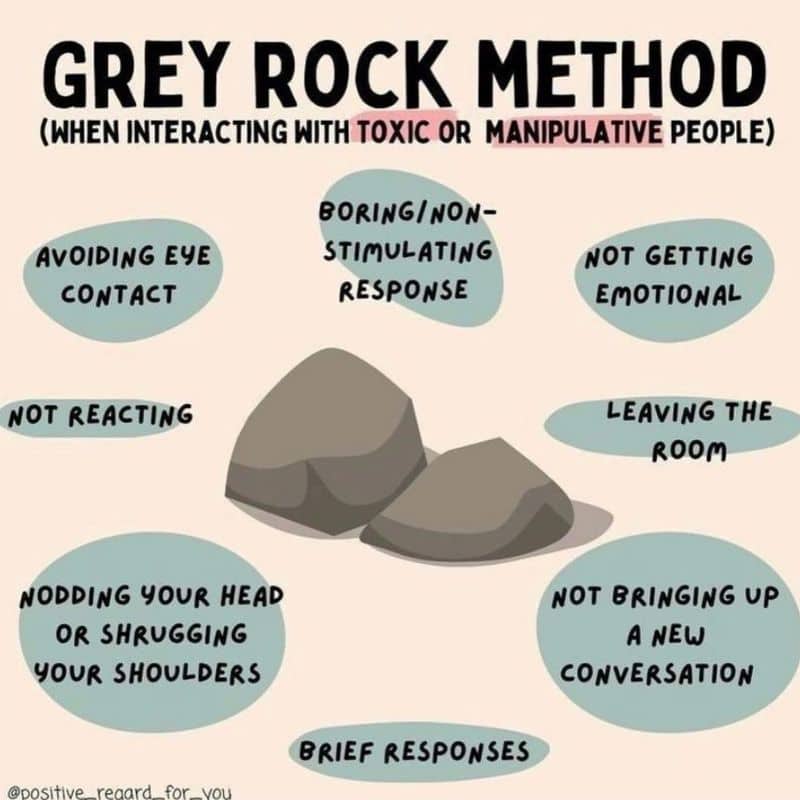Life’s too short to let negative people drain your energy and happiness. Dealing with constant complainers, critics, and emotional vampires can leave you feeling exhausted and stressed.
Learning how to create healthy space between yourself and toxic individuals isn’t selfish – it’s essential self-care that protects your mental wellbeing.
1. Recognize the Warning Signs
Your gut feeling rarely lies when it comes to toxic people. Pay attention when someone consistently leaves you feeling drained, anxious, or doubtful about yourself after interactions.
These emotional responses are your internal alarm system. Negative people often share telltale behaviors: constant complaining, criticizing others, playing the victim, or making everything about themselves. They might dismiss your achievements or amplify your mistakes.
Keeping a simple journal of how different people make you feel can reveal surprising patterns. Once you identify who consistently brings you down, you can make informed decisions about managing these relationships.
2. Set Firm Boundaries
Boundaries aren’t walls—they’re guidelines that protect your emotional health. Start small by limiting conversation topics that spiral into negativity or declining invitations that consistently leave you drained.
When setting boundaries, use clear “I” statements like “I need to end this conversation if it becomes critical” or “I’m available to talk for 20 minutes today.” Remember that healthy boundaries aren’t negotiable, even when others push back.
Many people worry boundaries will damage relationships, but the opposite is true. Respectful people will adjust to your limits, while toxic individuals will reveal themselves by fighting against your reasonable needs.
3. Minimize Direct Contact
Gradually reducing time spent with negative people creates breathing room without dramatic confrontations. Try spacing out your meetings—what was weekly could become monthly, giving you recovery time between interactions.
Technology offers clever distance tools: mute functions on social media keep their posts from your feed without the fallout of unfriending. Setting specific times to check messages prevents their negativity from interrupting your day unexpectedly.
For family members or coworkers you can’t avoid entirely, plan short, structured interactions in public places. Having a predetermined end time gives you control and prevents energy-draining extended encounters.
4. Build Your Positive Support Network
Surrounding yourself with uplifting people naturally crowds out space for negative ones. Seek friends who celebrate your wins without jealousy and offer constructive feedback without tearing you down. Their positive energy becomes your emotional shield.
Quality trumps quantity when building your circle. Even two or three deeply supportive relationships provide more strength than dozens of draining ones. Look for people who leave you feeling energized rather than exhausted after spending time together.
Don’t overlook community groups centered around shared interests or goals. Book clubs, volunteer organizations, or hobby groups connect you with like-minded people who focus on growth rather than grievances.
5. Practice the Art of Redirection
Steering conversations away from negativity works like social judo—redirecting energy rather than confronting it directly. When someone starts complaining, try responding with “What’s working well for you lately?” or “Any good news to share?”
Some negative people simply need acknowledgment before moving on. A brief “That sounds frustrating” followed by a topic change often works better than trying to solve their problems or getting pulled into their drama. For persistent negativity, the broken record technique proves effective.
Calmly repeat your redirection regardless of their attempts to return to complaints. Eventually, most people will adapt to the conversational boundaries you establish.
6. Develop a Mental Shield
Visualizing an invisible barrier between yourself and negative energy might sound strange, but this mental technique has powerful psychological benefits. Before difficult interactions, imagine a protective bubble surrounding you that allows positive energy in while deflecting negativity.
Mantras provide portable protection when you can’t avoid certain people. Simple phrases like “Their opinion isn’t my reality” or “I choose my own reactions” silently repeated help maintain emotional distance without visible confrontation.
Remember that most negative behavior reflects the other person’s internal struggles—not your worth. Mentally labeling their comments as “their issue” rather than “my problem” creates healthy detachment without dismissing your valid feelings.
7. Master the Graceful Exit
Escaping negative conversations doesn’t require dramatic door-slamming. Prepare a few neutral exit lines that work in various situations: “I need to finish something before deadline” or “I promised to call my mom today” create natural endpoints.
Body language signals your departure before words do. Standing up, gathering belongings, or checking the time all communicate your intention to leave without confrontation. These physical cues often prompt natural conversation closure.
For digital escapes, delayed responses create distance without conflict. Gradually extending your reply time from minutes to hours to days naturally resets expectations. Most negative people eventually direct their energy elsewhere when not receiving immediate attention.
8. Focus on Your Growth Path
Pursuing personal goals naturally pulls you away from negative influences without requiring direct confrontation. When you’re genuinely busy with meaningful activities, you have legitimate reasons to decline draining interactions.
Learning new skills surrounds you with growth-minded people who naturally replace negative influences. Cooking classes, language learning, or creative workshops connect you with others focused on improvement rather than complaints.
Your evolving interests and perspectives may naturally create distance as you outgrow certain relationships. This organic separation often happens without dramatic endings—you simply find less in common as your paths diverge, making the distancing process mutual rather than one-sided.
9. Use the Gray Rock Method
Becoming deliberately boring during unavoidable interactions is surprisingly effective at discouraging negative people. The “gray rock” approach involves giving minimal responses, avoiding emotional reactions, and sharing little personal information.
Practice neutral facial expressions and brief, non-committal responses like “interesting” or “I see” without elaborating or asking follow-up questions. Keep your voice tone flat and consistent, regardless of provocative statements.
This technique works because many negative people feed on emotional reactions or personal information they can use later. When you provide neither, they typically lose interest and seek more responsive targets for their drama. Remember—you’re not being rude, just strategically uninteresting.
10. Know When to Walk Away Completely
Sometimes the healthiest choice is ending relationships that consistently harm your wellbeing. Warning signs that cutting ties may be necessary include feeling unsafe, walking on eggshells, or noticing your self-esteem diminishing after interactions.
Complete separation doesn’t require dramatic announcements. The fade-out method—gradually reducing contact until it naturally ends—often works best for casual relationships. For closer connections, a brief, kind explanation provides closure without inviting debate.
After ending toxic relationships, expect a temporary void or even grief. These feelings don’t mean you made the wrong choice—they’re normal responses to change. The mental space you’ve created will eventually fill with healthier connections and renewed energy.











